Blood Loss Chart Trauma Critical bleeding is major haemorrhage that is life threatening and may require massive transfusion SOURCE OF HAEMORRHAGE It is convenient to consider injuries to 6 regions which may account for major blood loss Don t search satisfice and settle for one site of bleeding be thorough and systematic Think SCALPeR when finding the bleeding
Having a sense of how much blood a trauma patient spilled on the ground can be very helpful for understanding and estimating the casualty s potential for shock Unfortunately accurate visual estimation of blood loss and external blood volume is very challenging What class of hemorrhage or what of blood volume loss is the first to demonstrate systolic hypotension This is important because prehospital providers and those in the ED typically rely on systolic blood pressure to figure out if their patient is in trouble The answer is Class III or 30 40 But how do you remember the damn
Blood Loss Chart Trauma

Blood Loss Chart Trauma
https://www.mdpi.com/ijerph/ijerph-15-02285/article_deploy/html/images/ijerph-15-02285-g001.png

Trauma Blood Loss Chart
https://i1.rgstatic.net/publication/282043238_Impact_of_the_age_of_stored_blood_on_trauma_patient_mortality_A_systematic_review/links/560406b308aebfdb30b70b6c/largepreview.png

Trauma Blood Loss Chart
https://www.frontiersin.org/files/Articles/990903/fphys-13-990903-HTML/image_m/fphys-13-990903-g001.jpg
Estimated Blood Loss Blood loss of 150ml min B Haemodynamic Parameters Bleeding with a heart rate of 110 beats min and or systolic blood pressure Uncontrolled traumatic bleeding can lead to death due to excessive blood loss within minutes Early intervention is crucial to save lives making timely and effective hemostasis is a major
Download Table Hemorrhage Classification per ATLS 9th edition Estimated blood loss a based on patient s initial presentation from publication Trauma and Massive Blood Transfusions Estimate blood loss based on the size of the gauze and how much the blood has saturated the gauze Change the gauze before it becomes supersaturated and drips with blood for a more accurate estimation In surgical settings keep in mind that saline infused gauze is less absorbent than regular gauze
More picture related to Blood Loss Chart Trauma

Blood Loss Chart Trauma A Visual Reference Of Charts Chart Master
https://d3i71xaburhd42.cloudfront.net/890303fca9841748c7f7da24e3c4bcfe96a5579a/3-Figure2-1.png
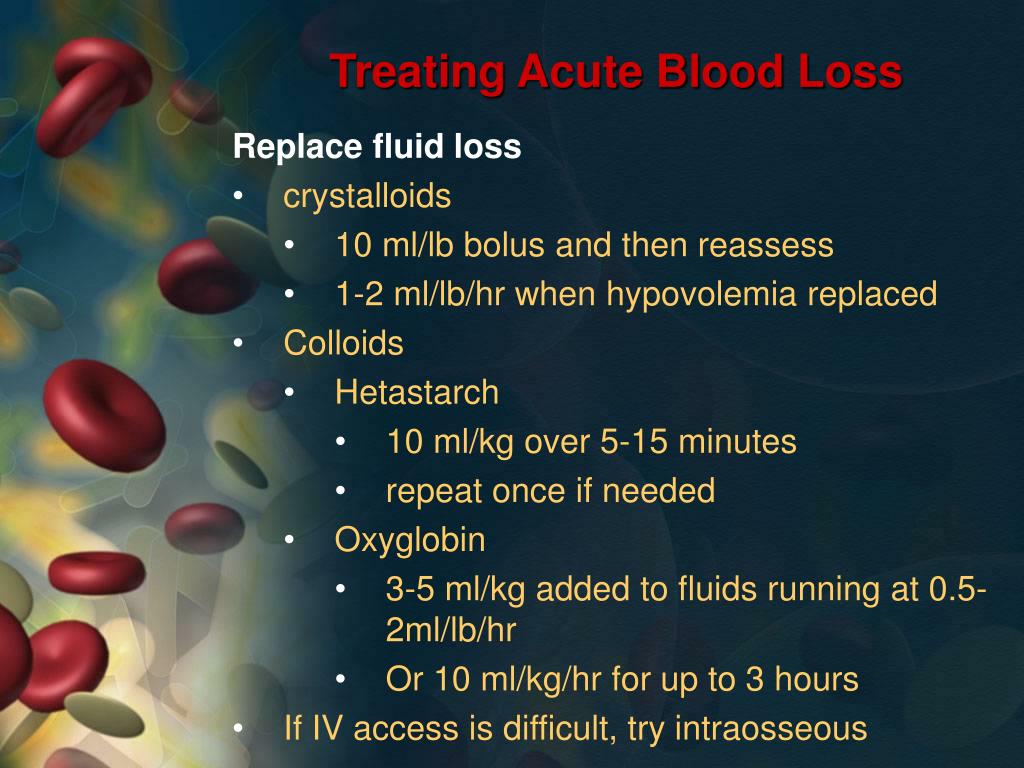
Blood Loss Symptoms Chart
https://image.slideserve.com/416318/treating-acute-blood-loss31-l.jpg

Blood Loss Symptom Chart
https://d3i71xaburhd42.cloudfront.net/2b4cb2fcf646c53b5d26b27d5705b39984dc00e5/2-Figure1-1.png
Hypovolaemic shock in adults is classified into four classes recognising that a trauma patient can suffer a significant blood loss of up to 30 of their circulating blood volume without alteration in blood pressure prior to decompensation as shock becomes irreversible Guideline for management of massive blood loss in trauma Srikantha Rao and Fiona Martin Correspondence Email srao1 psu edu intRoduction This article is about massive blood loss Most published guidance focuses on trauma but the advice is also relevant to other causes such as obstetric haemorrhage Further description of the management of
When assessing the major trauma patient remember the mantra FIND the bleeding STOP the bleeding It is convenient to consider injuries to 6 regions which may account for major blood loss Think SCALPeR when finding the bleeding Street scalp and external sources especially small children Chest Abdomen Appropriate management of the massively bleeding trauma patient includes the early identification of bleeding sources followed by prompt measures to minimise blood loss restore tissue perfusion and achieve haemodynamic stability

Blood Loss Symptom Chart
https://i.pinimg.com/originals/de/9d/9a/de9d9a2b726bdfa698d21be9dfff6de5.jpg
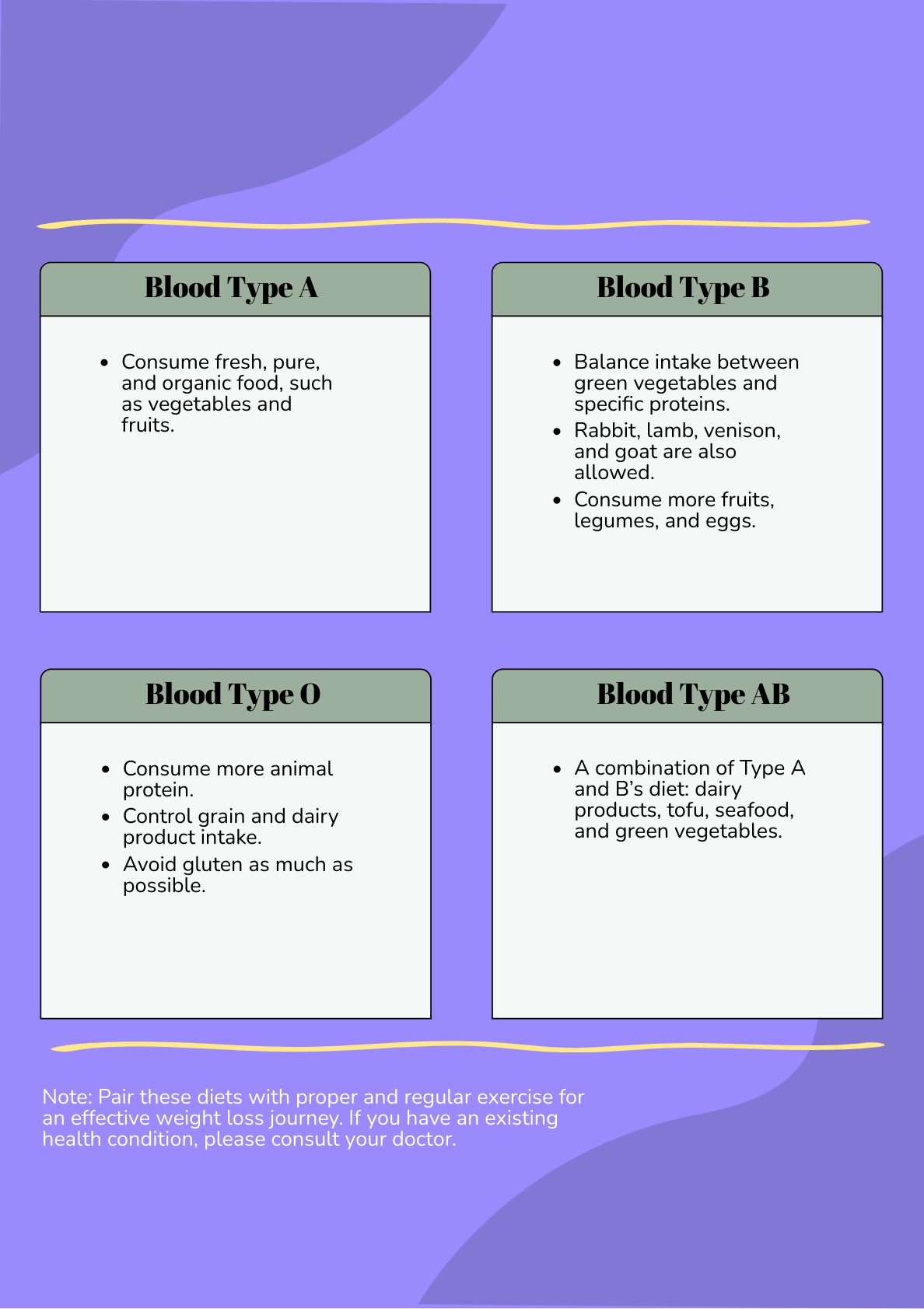
Weight Loss Blood Type Diet Chart In Illustrator PDF Download Template
https://images.template.net/115795/weight-loss-blood-type-diet-chart-yozxc.jpeg
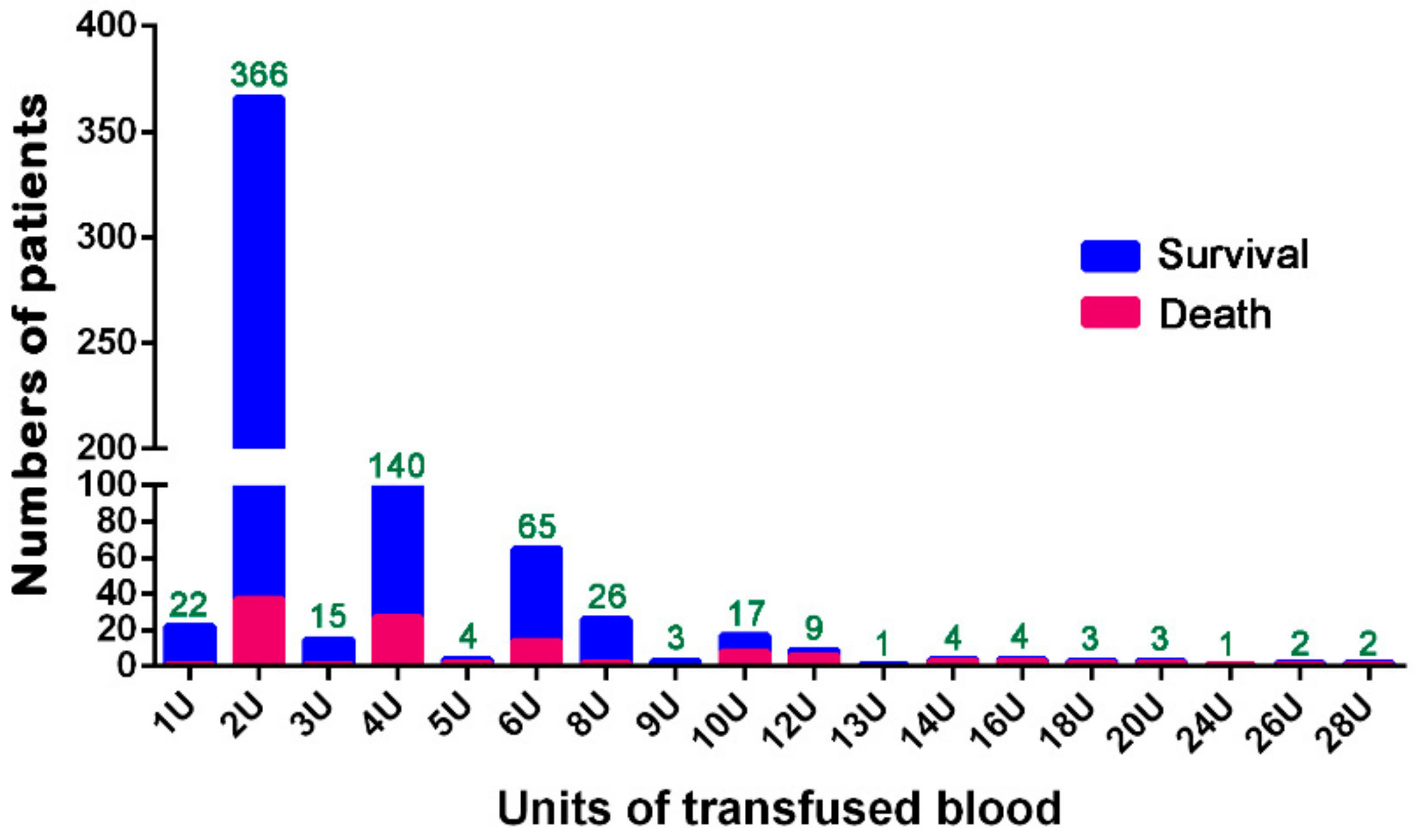
https://litfl.com › major
Critical bleeding is major haemorrhage that is life threatening and may require massive transfusion SOURCE OF HAEMORRHAGE It is convenient to consider injuries to 6 regions which may account for major blood loss Don t search satisfice and settle for one site of bleeding be thorough and systematic Think SCALPeR when finding the bleeding

https://www.crisis-medicine.com › visual-estimation-of-blood-loss
Having a sense of how much blood a trauma patient spilled on the ground can be very helpful for understanding and estimating the casualty s potential for shock Unfortunately accurate visual estimation of blood loss and external blood volume is very challenging

Flowchart Of Scenario 1 Involving A Trauma Injury With Severe Blood Loss Download Scientific

Blood Loss Symptom Chart

Blood Loss During Different Elective Trauma Surgeries Download Table
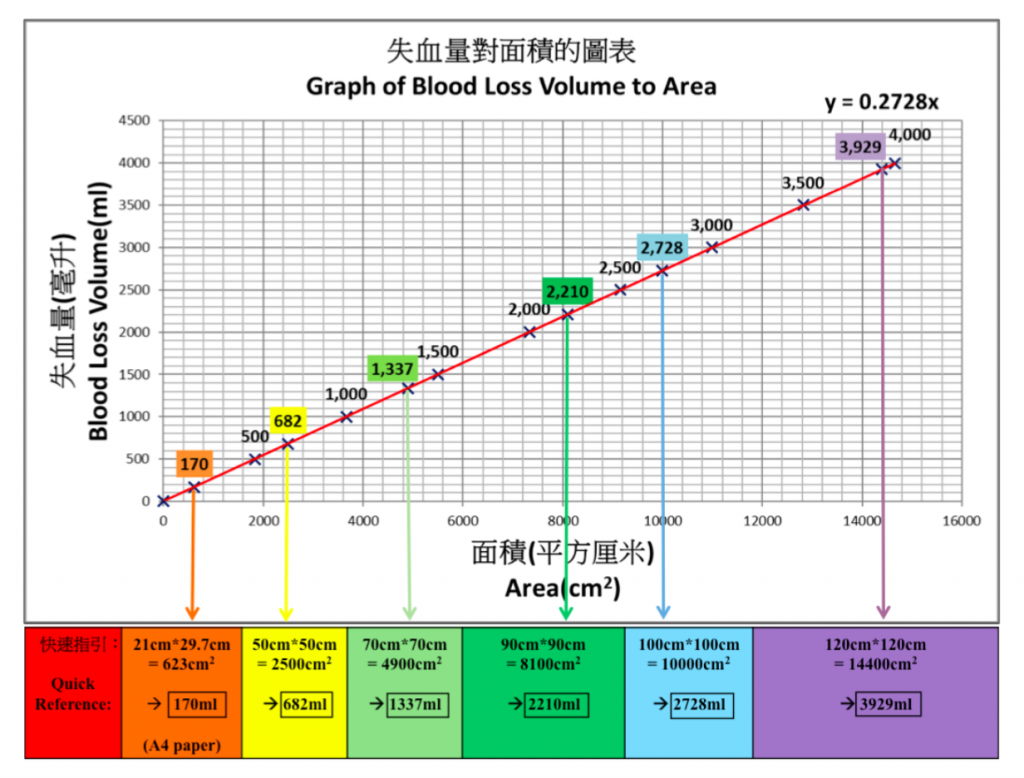
Can Prehospital Providers Accurately Estimate Blood Loss Part 2 The Trauma Pro
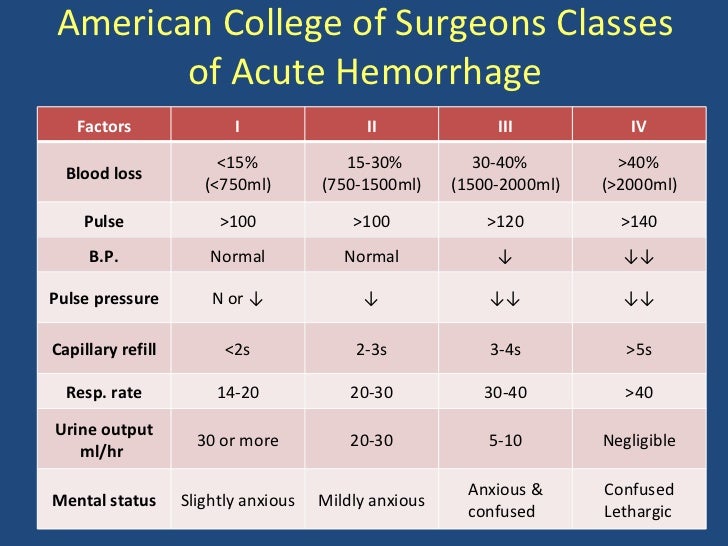
Fluid And Blood Resuscitation In Abdominal Trauma

Calculation Of Total Blood Volume And Estimated Blood Loss Download Scientific Diagram

Calculation Of Total Blood Volume And Estimated Blood Loss Download Scientific Diagram

Figure 1 From Using Blood Loss Pictogram For Visual Blood Loss Estimation In Cesarean Section

Operative Blood Loss Blood Transfusion And 30 day Mortality In Older Patients After Major

Estimating Blood Loss A Critical Skill In Triage LaSorsa Associates Executive Protection
Blood Loss Chart Trauma - Blood loss is a major cause of morbidity and mortality in trauma Blood loss estimation in the surgical literature is well studied but there is limited data outside of the operating room